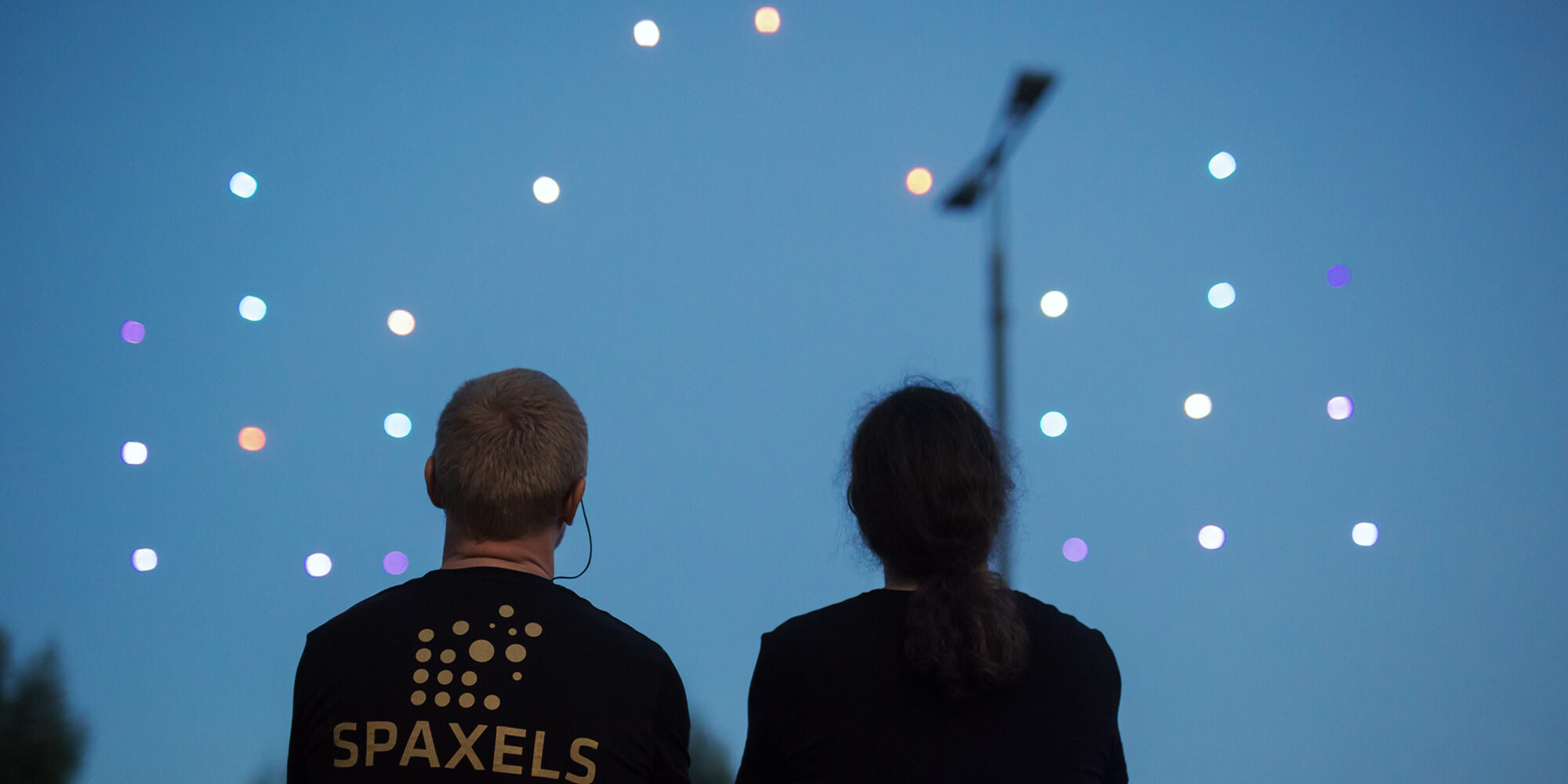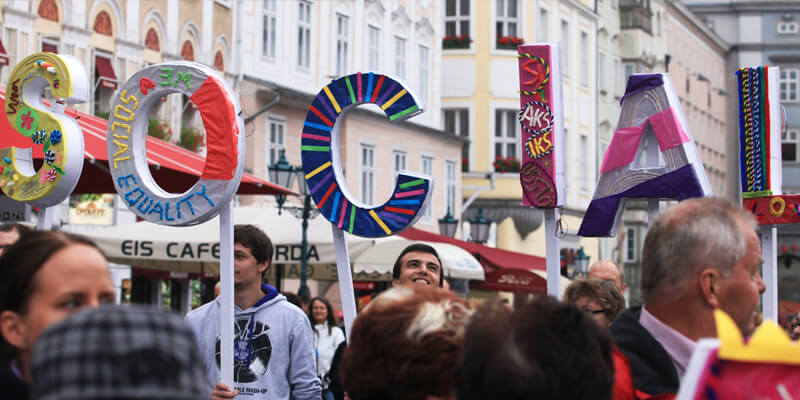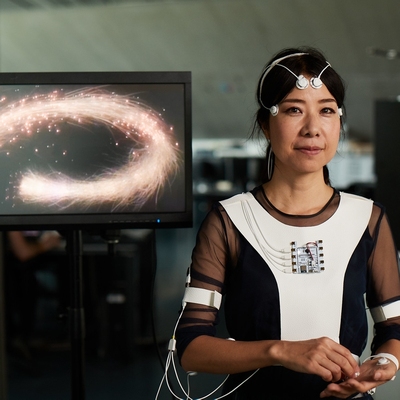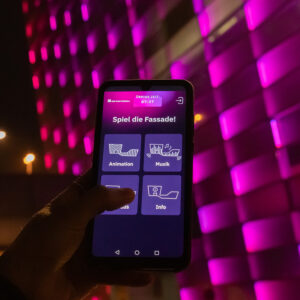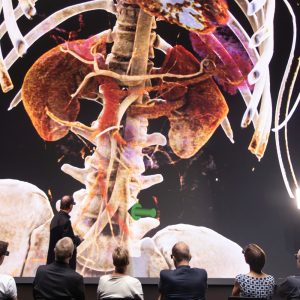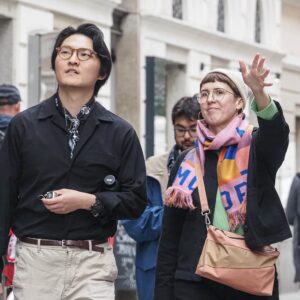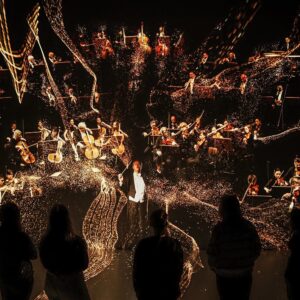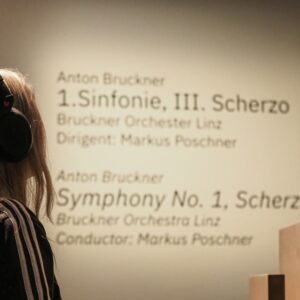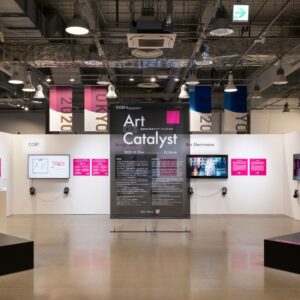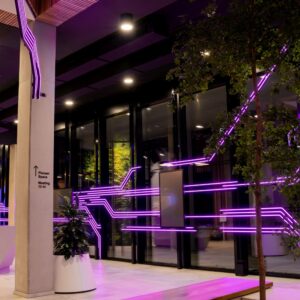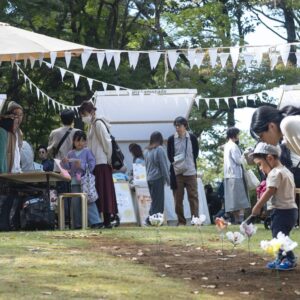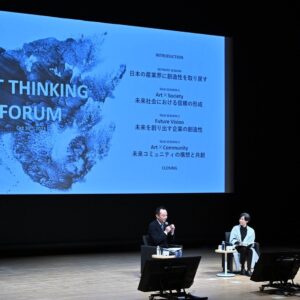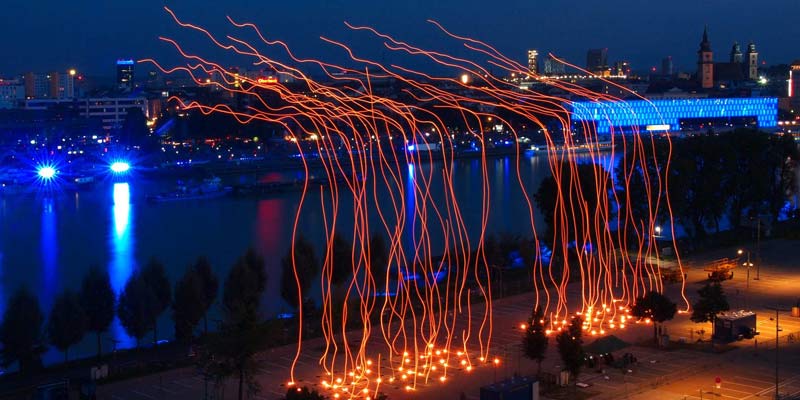The Ars Electronica Futurelab has constantly reinvented itself since it was founded over 25 years ago. Originally intended to develop new interactive exhibits for the Ars Electronica Center, it has since become a research and development laboratory that connects art, technology and society. The Ars Electronica Futurelab collaborates with numerous partners from a wide variety of sectors worldwide and continues to attract attention with its extraordinary projects. Our topics range from future narratives to Art Thinking, from creative artificial intelligence to drone swarms, from virtual reality and mixed reality to co-immersive spaces, from green innovation to industry 5.0, from genetics to robotics – and much more.
Philosophy
The decisions we make today will create the future of tomorrow. And by questioning these decisions, we can contribute to shaping the world. This process requires awareness, critical thinking and curiosity about the ever-changing technological and social environment, and art.
Art creates opportunities for dialogue with society by giving meaning to and questioning new technologies. Through the creation of tangible futures, we deliver cultural and educational opportunities that enable people to better understand and act on diverse futures.
To make this happen, we need a free social experimental space where diverse people intersect daily with cutting-edge technology, science, and art. The future is driven by creativity, passion, opportunity, and the unconscious and responsible exchange of ideas.
We at the Ars Electronica Futurelab are the do tank for that future.
History
After founder Hannes Leopoldseder launched the first Ars Electronica Festival in 1979, Ars Electronica quickly became known worldwide – a credit to numerous people who strengthened the novel concept from the very beginning. Among them was co-founder Christine Schöpf, who helped the Prix Ars Electronica, launched in 1987, to achieve international significance. It was also she who pushed to establish an in-house research and development facility. In 1995, Gerfried Stocker became Artistic Director and Co-CEO of Ars Electronica. He brought Horst Hörtner into the team, who became head of the Ars Electronica Futurelab. After an incubation phase, the lab got started with the opening of the Ars Electronica Center in 1996.
“The only thing you can create is the future. Anything else is already created.
And it will be created based on your decisions.”
Horst Hörtner
Work
The first installations in the museum, such as the CAVE, were soon joined by collaborations with academic institutions and industry, and prestigious international partnerships followed. Over time, the artists and developers of the Ars Electronica Futurelab moved into ever new areas: the exploration of drone swarms, artificial intelligence, robotics and genetics, but also the shared experience of virtual worlds in Deep Space 8K, the poetic representation of complex systems and Art Thinking as a catalyst for change.
Have a look at our latest projects:
Stories
In 2021, the Ars Electronica Futurelab celebrated it’s 25th anniversary under the theme “Alchemists of the Future” to provide insight into the lab’s work, history and future: with a special Futurelab Day during the Ars Electronica Festival, an exhibition and new installations in the Ars Electronica Center as well as a book and a video series.
During the preparations for the 25th anniversary, seven stories emerged along key areas of the Ars Electronica Futurelab’s research, development and prototyping work: Virtual Worlds, Poetic Systems, The Art of Swarms, Humanity and Robotinity, Code for Matter, Artificial Intelligence, and Art Thinking. These stories contextualize the lab’s work with various technologies and their impact on our lives in the future. With various activities like a special website as well as the videos of the 25th Anniversary Series, the lab’s researchers and artists provided insight into these stories.
Discover the stories of 25 years of Ars Electronica Futurelab
Timeline
1996 – Founding of Ars Electronica Futurelab— Ars Electronica’s ‘fourth pillar’
1997 – First collaborations with academic institutions and first industrial commissions
2002 – Ars Electronica Futurelab moves into its own premises and laboratory space in a commercial building close to the Ars Electronica Center
2004 – First commissions from international corporate clients
2008 – Work on the creation of the relaunch and architectural expansion of Ars Electronica Center, including Deep Space, a spacious projection aera for ultra-high-definition worlds of imagery which features 8 stereo HD projectors, projecting on a 16×9-meter wall and floor surface.
2009 – Ars Electronica Futurelab moves into its own premises in a separate part of the new Ars Electronica Center building and undergoes a restructuring process
2012 – Key role of Ars Electronica Futurelab in the creation of Klangwolke 2012 (Cloud of Sound), including the first public performance of Spaxels
2012 – Ars Electronica Solutions is established as a spin-off of Ars Electronica Futurelab to bring the creations and prototypes that emerge from the Ars Electronica ecosystem to the market
2014 – Start of Art Thinking program in cooperation with Japanese agency Hakuhodo
2015 – Upgrade of Ars Electronica Center’s Deep Space to 8K projection technology
2019 – Complete thematic redesign of Ars Electronica Center with a clear focus on AI, featuring the Understanding Artificial Intelligence exhibition
2020 – Start of Ars Electronica Futurelab’s Ideas Expedition program as it prepares for its 25th anniversary in 2021
2021 – 25th anniversary Ars Electronica Futurelab
